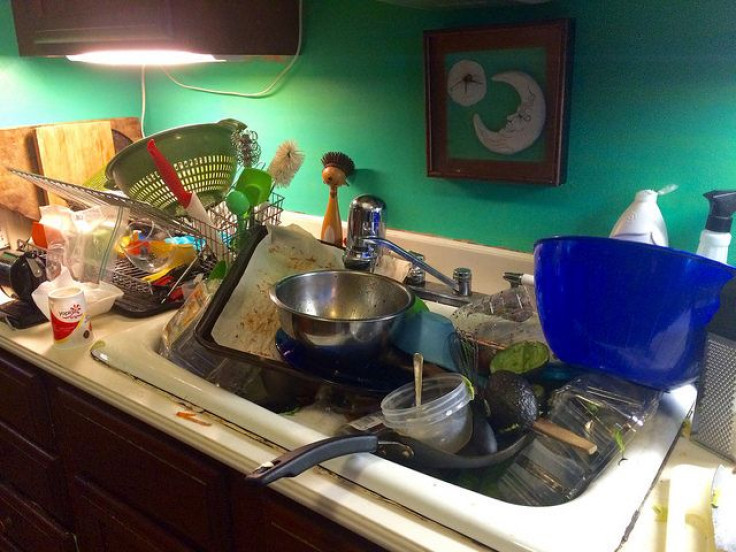A Messy Kitchen Induces Sense Of Chaos, Prompts Overeating

There are a variety of reasons for why you might find yourself overeating. Stress is one of them, and so is a high-fat diet, which can change your gut bacteria. Other people simply don’t want to see good food go to waste.
Researchers from the Cornell Food and Brand Lab and the University of South Wales, Australia have found another, somewhat random reason: your messy kitchen. In a study published in Environment and Behavior, they show how cluttered kitchens can influence us to overeat — not just any food, but sweets specifically.
“Being in a chaotic environment and feeling out of control is bad for diets,” said lead author Dr. Lenny Vartanian, associate professor of psychology at the University of South Wales, in a press release. “It seems to lead people to think, ‘Everything else is out of control, so why shouldn’t I be?’”
The study is the latest to show a link between our psychology and the amount of food we eat. Previous studies from the Food and Brand Lab have revealed eating from oversized plates is enough to stimulate the urge to eat more food. Other research has found sad movies or an overstimulating environment, like a loud diner with a bar and TVs playing the football game, can have the same effect. It’s fair to say a cluttered kitchen, with newspapers scattered on a table, dirty dishes filling the sink, and a ringing phone can elicit the same sense of chaos.
The study involved 98 women who were asked to write about a time when they felt their life was under control or out of control. Then, half were asked to wait for a friend in either a kitchen with the aforementioned mess, or one that was clean and organized. Both kitchens featured bowls of cookies, carrots, and crackers.
The researchers found women who wrote about feeling out of control before sitting in the messy kitchen ate twice as many calories in cookies than those who were in the tidy kitchen. On the other hand, women who sat in the messy kitchen, but wrote about being in control, consumed 38 fewer calories. When it came to eating crackers or carrots, the researchers found neither room had an effect, suggesting messiness only affects people’s inclination to eat sweets.
The researchers said even though their study only involved women, the results may also apply to men. While a tendency to overeat may come from our genes, the study shows there’s more behind our hunger cues than the biological processes within our bodies. That said, there are ways to counter the effects of overeating, including being mindful when you eat (which includes sitting down to do it) and curbing the amount of alcohol you consume.
Source: Wansink B, Kernan K, Vartanian L. Clutter, Chaos, and Overconsumption: The Role of Mind-Set in Stressful and Chaotic Food Environments. Environment and Behavior. 2016.



























